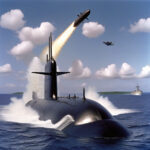The recent addition of Wingtech to the US Entity List has sent ripples across the semiconductor landscape, impacting not just the company itself but a multitude of stakeholders in the technology and business world. As a parent company to Nexperia, Wingtech’s classification under US trade regulations signals crucial changes that industry leaders must understand and navigate.
— US Entity List: What It Means
The US Entity List is a tool used by the US Department of Commerce to restrict exports, reexports, and in-country transfers of goods and technology to listed entities. By placing Wingtech on this list, the US government aims to curtail its access to critical technologies, particularly those related to semiconductor manufacturing.
This action does not occur in isolation. It is a move reflective of broader geopolitical tensions, especially between the US and China, emphasizing technological supremacy as a key battleground. Wingtech’s addition to the list raises questions about its manufacturing capabilities and potentially limits Nexperia’s ability to innovate within the semiconductor market.
— Understanding the Impact on Nexperia
Nexperia, a leading semiconductor manufacturer, derives its strength from its parent company. With its robust portfolio catering to various sectors including automotive, industrial, and consumer electronics, the implications of the Entity List designation could be profound.
1. Operational Adjustments: Nexperia and its affiliates may need to adjust operations to ensure compliance with US regulations. This will likely involve reevaluating supply chains, reviewing contractual agreements, and possibly halting collaborative projects that involve US technology.
2. Market Position and Competition: Nexperia’s standing in the global semiconductor market could be jeopardized. Competing firms not subjected to similar restrictions may capitalize on this situation, thereby enhancing their market presence at Nexperia’s expense.
3. Innovation Limitation: Access to advanced semiconductor technologies from US firms will be restricted, potentially stifling Nexperia’s innovation capabilities. Research and development initiatives could be impacted, resulting in delayed product timelines and reduced competitiveness.
— The Bigger Picture: Global Semiconductor Dynamics
The repercussions of the US Entity List placement on Wingtech extend beyond corporate limitations. They reflect a clear shift in global semiconductor dynamics.
– Supply Chain Volatility: The global semiconductor supply chain has already been under strain from geopolitical issues, a pandemic, and high demand across industries. The inclusion of Wingtech on the Entity List could exacerbate these tensions, leading to further shortages or increased prices.
– Increased De-coupling: As nations grapple with technology dependence, firms may begin to seek self-sufficiency in semiconductor production. This shift may lead to investments in domestic manufacturing plants and increased collaboration within regional markets, particularly in Asia and Europe.
– Focus on Compliance: Companies connected to international trade must intensify their compliance mechanisms. With trade barriers being dynamically altered at the governmental level, businesses will have to be proactive in understanding regulations and ensuring adherence to avoid penalties.
— What’s Next? Strategic Considerations
For stakeholders directly or indirectly linked with Nexperia or Wingtech, several strategic considerations should be at the forefront:
1. Risk Assessment: Conduct thorough assessments of project investments and partnerships involving Nexperia, particularly in terms of potential regulatory risks that could arise from their association with Wingtech.
2. Diversification of Supply Chains: Companies should consider diversifying their supply chains to mitigate risks associated with reliance on a limited number of suppliers or specific regions that may be impacted by trade regulations.
3. Investment in Compliance Resources: Organizations should enhance resources dedicated to understanding and responding to evolving trade policies. This investment will help navigate complex international regulations more effectively.
— Conclusion: A New Era for Semiconductor Companies
The inclusion of Wingtech on the US Entity List marks a pivotal moment for the tech industry, particularly within the semiconductor space. It serves as a reminder of the intricate balance of global trade, national security, and technology innovation. As semiconductor companies adapt to these changes, their strategies will determine their capacity to thrive in a fast-changing landscape defined by both opportunity and challenge.
Ensuring a close watch on regulatory developments, rethinking operational strategies, and maintaining flexibility will be critical as industry players navigate this evolving terrain.












